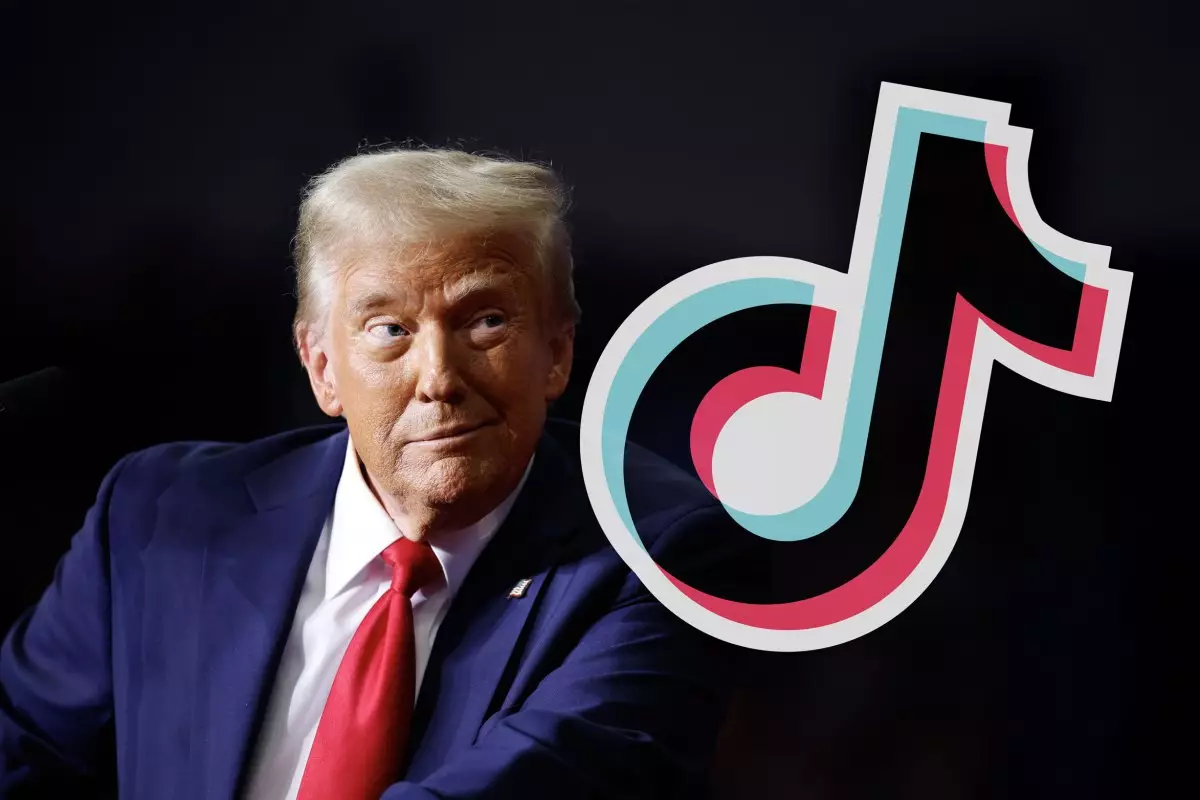In a startling yet somewhat expected turn of events, President Donald Trump has opted to extend the impending TikTok ban deadline by 75 days, granting the popular social media platform a crucial reprieve. Announcing the decision on Truth Social, Trump articulated that his administration is significantly invested in crafting a deal that prioritizes both economic interests and security concerns surrounding TikTok, a platform owned by the Chinese company ByteDance. The move not only signals an intricate dance of diplomacy but also showcases the turbulence within the U.S.-China tech landscape.
As the initial ban deadline loomed over the horizon, the stakes could not have been higher. Originally set for January 19, the ultimatum placed upon ByteDance to divest its U.S. operations reflected broader tensions and insecurities associated with Chinese tech influences in America. The executive order signed by Trump further complicates an already convoluted narrative that has seen TikTok oscillate between being an essential communication tool for millions and a perceived threat to national security.
Scrambling for Solutions Amidst Political Pressures
Despite the apparent progress indicated by Trump’s announcement, it is essential to recognize that this is not his first extension. Historically, the complex negotiations surrounding TikTok have revealed a government grappling with significant criticism, facing both internal and external pressures. This situation serves as a litmus test for confronting issues of technology regulation, national security, and the geostrategic implications of foreign ownership in critical digital infrastructures.
The government’s leadership on this issue, specifically Trump’s personal involvement in reviewing proposals from various American investors, highlights a pivot towards stakeholder engagement. Notably, competition for TikTok’s U.S. operations includes high-profile companies such as Oracle, Blackstone, and Walmart. Each potential acquirer presents its own set of ramifications—not just on economic grounds, but also concerning privacy, user data security, and the geopolitical tug-of-war that continues to unfold.
The Dance of Diplomacy: Tariffs and Good Faith Negotiations
Trump’s comments regarding the potential for tariff reductions in exchange for TikTok concessions paint a picture of bargaining that often overshadows the technical discussions surrounding data privacy and user rights. His assertion that “Tariffs are the most powerful Economic tool” reveals a candid reflection on the interwoven nature of international trade and digital platforms.
However, it’s crucial to dissect whether such a leverage-driven strategy is sustainable or effective in achieving a long-term solution. By tying TikTok negotiations to broader trade disputes with China, Trump risks creating a volatile platform for discourse that might ultimately hinder the potential for a stable agreement. With China retaliating by implementing significant tariffs on U.S. goods, the burgeoning conflict raises questions about the efficacy of using these economic tools as bargaining chips.
The landscape is complicated further by China’s conditional approval for any potential deal. ByteDance’s reluctance to fully divest indicates a lack of willing partners on the other side of the negotiation table, presenting a proverbial catch-22 for U.S. policymakers. Attempting to navigate this treacherous terrain demands not only economic acumen but also an understanding of cultural nuances and regulatory frameworks spanning two vast nations.
Implications for the Future of American Tech
As Washington contends with digital giants, the TikTok saga serves as a touchpoint for more profound conversations about the future of American tech. The implications extend well beyond a single app; they demand a reckoning of how technology companies navigate a global marketplace fraught with competing interests. What we witness here is more than a corporate negotiation; it encompasses issues of digital sovereignty, data ethics, and consumer empowerment.
The political maneuvering surrounding TikTok invites both skepticism and hope. Will America be able to protect its economic interests while fostering innovation and allowing users a platform for expression? The challenge ahead is not merely in delivering one-time deals; it resides in establishing a cohesive framework governing technology engagement amidst rapidly shifting political landscapes.
The TikTok discussion encapsulates the urgency with which stakeholders must address not just immediate concerns but the foundational ethics and structures that guide tech ownership and operation globally.

